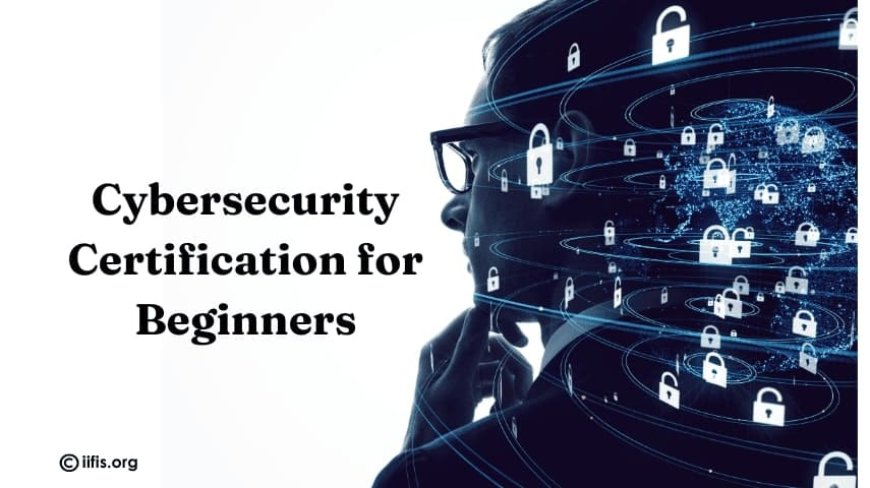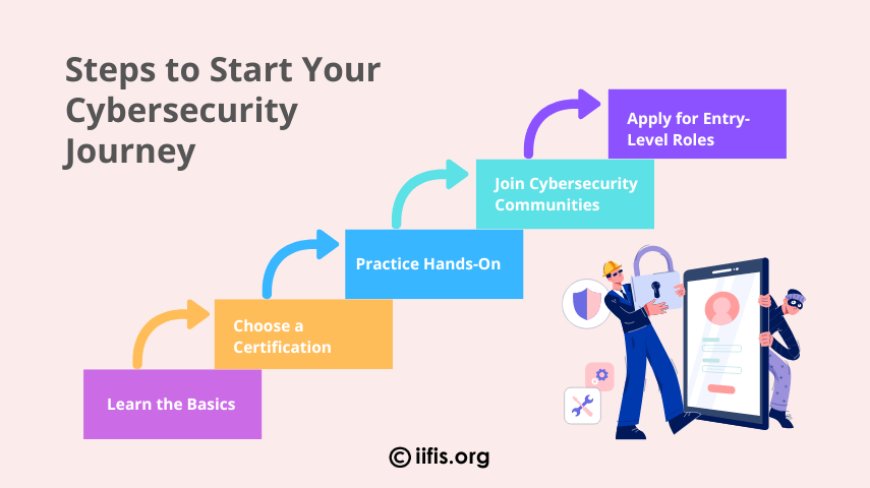Cybersecurity Certification for Beginners: Easy Start Guide
Unlock your potential in the tech world with our guide to cybersecurity Certification for Beginners. Discover essential certifications, skills needed, and steps to kickstart your career in cybersecurity.

As technology becomes integral to everyday activities like banking, shopping, and communication, ensuring the security of systems, data, and networks has become a top priority. Cybersecurity is a critical field dedicated to protecting against ever-evolving threats and offering exciting and rewarding career opportunities. For beginners looking to break into this essential and fast-growing industry, building a strong foundation and pursuing the right certifications are key steps. This expert guide provides a clear pathway to help you start your cybersecurity journey and develop the skills needed to excel in this high-demand profession.
What is Cybersecurity?
Cybersecurity focuses on safeguarding systems, networks, and data from unauthorized access, theft, or attacks by cybercriminals. It ensures that sensitive information remains secure and accessible only to authorized users, protecting both individuals and organizations. For example, when you log into your bank account online, robust cybersecurity measures work behind the scenes to encrypt your data, verify your identity, and block potential threats. Beyond personal safety, cybersecurity also defends critical infrastructure, such as power grids and healthcare systems, ensuring the smooth functioning of essential services. As technology evolves, the importance of cybersecurity grows, making it a cornerstone of the digital age.
Why Consider a Career in Cybersecurity?
-
Job Security: Cybersecurity experts are in demand. Every company, no matter its size, needs professionals to protect their systems.
-
Good Salaries: Since skilled cybersecurity professionals are highly valued, they often earn competitive salaries.
-
Room to Learn and Grow: This field evolves constantly, meaning you’ll always have opportunities to learn something new.
Whether you’re just starting or looking for a career change, cybersecurity is a promising field with plenty of opportunities.
Can Anyone Learn Cybersecurity?
The short answer is yes. You don’t need a technical background to get started. Anyone with basic computer skills, curiosity, and a willingness to learn can start a cybersecurity journey.
However, some skills can help:
-
Interest in understanding how computers and networks work.
-
Problem-solving ability.
-
A knack for paying attention to details.
What Are Cybersecurity Certifications?
-
Certified Information Security Foundation (CISF): This entry-level certification covers fundamental concepts of information security, including risk management, security frameworks, and best practices. It's ideal for those new to the field.
-
Penetration Tester: A specialist who simulates cyberattacks to identify vulnerabilities in systems and networks before real attackers can exploit them.
-
Cybersecurity Manager: A professional responsible for overseeing an organization’s security strategies and ensuring policies and defenses protect against cyber threats.
-
AI Cybersecurity Associate: An expert combining artificial intelligence and cybersecurity to develop intelligent systems for detecting and responding to cyber threats in real time.
-
Certified Network Security Specialist (CNSS): This certification focuses on the principles and practices of network security. It’s a good choice for beginners interested in securing networks and understanding related technologies.
-
Certified Ethical Hacker (CEH): this certification introduces beginners to ethical hacking techniques, helping them understand how to identify and address changes in systems.
What Will You Learn from These Certifications?
When you pursue a cybersecurity certification, you’ll gain a variety of skills, including:
-
Understanding Networks: Learn how devices connect and share information.
-
Identifying Threats: Recognize common cybersecurity risks like phishing, malware, and hacking attempts.
-
Securing Data: Learn ways to protect sensitive data from being leaked or stolen.
-
Using Cybersecurity Tools: Get hands-on experience with tools like firewalls, antivirus software, and network monitoring systems.
Steps to Start Your Cybersecurity Journey
-
Learn the Basics
Start by understanding the fundamentals of computers, networks, and security. There are plenty of free resources like YouTube tutorials and online blogs to help you. -
Choose a Certification
Decide which certification aligns with your goals. For beginners, IIFIS is a great choice. -
Practice Hands-On
Websites like TryHackMe and Hack The Box offer labs and exercises that let you practice cybersecurity skills in a safe environment. -
Join Cybersecurity Communities
Being part of a community can be motivating. Look for groups on LinkedIn, Reddit, or local meetups where beginners and professionals share advice. -
Apply for Entry-Level Roles
Once you have a certification, start looking for internships or entry-level roles to gain practical experience.

Beginner-Friendly Cybersecurity Jobs
There are many roles in cybersecurity for those just starting. Here are a few:
-
Security Analyst: They monitor networks for suspicious activity and respond to threats.
-
Penetration Tester (Pen Tester): They simulate cyberattacks to find weaknesses in systems.
-
IT Support with Security Focus: These roles involve troubleshooting technical issues while ensuring security protocols are followed.
Tools and Resources to Learn Cybersecurity
Here are some beginner-friendly tools and resources to help you learn:
-
Websites: Explore free resources on platforms.
-
Books: Read beginner books like Hacking: The Art of Exploitation.
-
Videos: Follow cybersecurity experts on YouTube for tutorials and tips.
Common Myths About Cybersecurity
Many people hesitate to start their cybersecurity journey because of misconceptions. Let’s address a few:
-
“You need to be a coding expert.” Not true! While coding helps in some areas, many cybersecurity roles don’t require it.
-
“Cybersecurity is only for young people.” Anyone, regardless of age, can learn and excel in this field.
-
“Cybersecurity is all about hacking.” While hacking is a part of it, cybersecurity also involves risk management, compliance, and policy-making.
Challenges Beginners May Face and How to Overcome Them
-
Overwhelmed by Information: The field is vast, and it’s normal to feel lost at first. Focus on one topic or certification at a time.
-
Understanding Technical Terms: Keep a glossary of terms and start with beginner-friendly resources.
-
Hands-On Practice: Use free labs and exercises to build confidence.
Remember, every expert was once a beginner. Take small, consistent steps to build your knowledge.
Staying Motivated and Consistent
Learning something new can be challenging, but here are some tips to stay on track:
-
Set Small Goals: Break your learning into manageable chunks. For example, aim to complete a chapter of a course each week.
-
Celebrate Milestones: Whether it’s passing an exam or solving a practice lab, reward yourself for progress.
-
Stay connected: Engage with peers and mentors who can guide and motivate you.
Cybersecurity offers a wealth of opportunities for those willing to learn, and certifications are a key way to build your expertise and showcase your skills. Among the leading providers, the International Institute for Information Security (IIFIS) stands out for offering globally recognized certifications tailored for beginners and professionals alike. Their programs focus on practical, hands-on learning, covering areas like ethical hacking, network security, and data protection. Certifications from IIFIS, such as the Certified Cybersecurity Professional (CCP) or Advanced Network Security Specialist (ANSS), are designed to help individuals gain a strong foundation and stay competitive in the evolving field of cybersecurity. Taking that first step with IIFIS can open doors to a rewarding and impactful career.
























